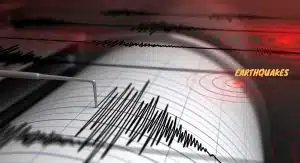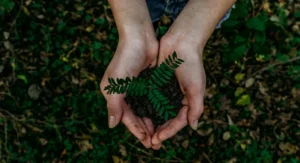Essential Precautions Against Natural Calamities
By Ashley Shoptorshi Samaddar
May 21, 2023
Update on : May 21, 2023

“Are you ready to deal with the aftermath of a natural disaster?” This question frequently takes us by surprise because we have the propensity to underestimate the force and the impact of the wrath of mother nature.
Disasters of a natural origin, such as hurricanes, earthquakes, floods, and wildfires, can hit with little or no notice, causing extensive property damage and putting lives in jeopardy. However, being prudent and taking necessary safety measures may considerably increase the likelihood of making it through such trying times.
In this piece, we will go over the top ten safety measures that you ought to take to prepare when there is a possibility of being affected by a natural disaster.
Stay informed
Keeping yourself informed is one of the most crucial things you can do to get ready for and handle a natural disaster. Make it a priority to stay abreast of developing events by monitoring reputable sources of news and information, such as local weather forecasts, public service announcements, and amber alerts.
Know the potential risks in your area and the exact precautions that experts advise taking in order to avoid each sort of disaster.
Have an emergency plan
Creating an emergency plan is essential for effective preparedness against a disaster.
Make sure you have a complete strategy that includes ways to get out of the area, places to meet up with people, and ways to communicate with your loved ones and close friends.
Each family member should be given jobs and responsibilities so that they are informed of what to do in the event of an unexpected catastrophe.
Prepare an emergency kit
One of the most crucial things you can do to make sure that you and your family will be able to survive in the case of a disaster is to put together a disaster supply pack.
Imperishable food items, an ample quantity of water, first aid materials, flashlights, additional batteries, a portable radio, crucial documents (such as identification and insurance papers), and any medications that may be required should be included in the emergency kit.
Make sure you have enough supplies to last for at least three days.
Secure your property
You can reduce the amount of damage that a natural catastrophe will do to your property by taking precautions to protect it.
Windows and doors should have reinforcements added to them so that they can better withstand the power of heavy winds. It is also important to keep gutters and drains clean in order to avoid water build-up.
Additionally, you should secure any outdoor items, such as patio furniture, garden tools, or debris, that could become projectiles if there was a storm with strong winds.
Evacuate when necessary
In the event that it becomes essential, you will be given orders to evacuate for your own protection by the appropriate authorities.
It is absolutely necessary to respond immediately to these orders and evacuate to a safer location.
Make sure you are familiar with the recommended evacuation routes, and have a plan in place for how to get about. Keep in mind that it is almost always wiser to leave early rather than wait until the very last minute.
Stay indoors during the calamity
If leaving your home is not essential or is not an option, you should seek shelter indoors during a disaster.
Locate a building that is strong and keep away from any windows. Find a place in your home that is safe from the type of disaster that is expected, such as the basement during a tornado or a higher floor during a flood, and move to that spot.
Create a barrier between yourself and any potential hazards by putting furniture or other objects between you and them.
Maintain a communication plan
In the event of a natural disaster, it is critical to create and stick to a communication plan with your loved ones.
Find a way to communicate with each other that you both agree on in case you become separated. During times of crisis, it is typically more dependable to communicate via text messaging or social media platforms because these help conserve phone batteries and lessen the amount of network congestion.
Choose a contact person who lives out of town and assign them the role of acting as the primary point of connection.
Stay aware of warning signs
Maintain vigilance with regard to the warning indicators Paying close attention to the warning signs or changes in the surrounding environment might buy you precious minutes or even seconds to prepare for the upcoming calamity.
Keep an eye out for rapid shifts in the weather patterns, strange behaviour in the animals, or vibrations in the ground.
Acquaint yourself with the unique warning signs related to the various disasters that can occur in your region, and then take the appropriate precautions.
Have a backup power source
It is important to have a backup power source, as power-cuts are very common natural disasters such as cyclones or earthquakes.
Having access to alternative power sources can assist in maintaining electricity for vital equipment and create a sense of normalcy during times of disruption.
In order to preserve electricity for vital equipment like mobile phones, medical devices, and other essential tools, it may be worthwhile to invest in a portable generator or solar chargers.
Stay calm and follow instructions
Maintain composure, be calm, and pay attention to any directions that are being given to you.
Your capacity to make sensible judgements can be affected by panic, putting your safety at risk. Instead, maintain your composure and follow the directions given to you by the local authorities or the emergency workers.
They have been trained to deal with situations like these and will offer counsel on the most prudent way to proceed in the case.
To sum up, preparing for a natural calamity is a responsibility that should not be taken lightly. By taking these precautions, you can face natural calamities with greater resilience and protect the well-being of yourself and your loved ones. Nature can be unpredictable, and being prepared is the best defence. Take the necessary steps today to ensure a safer tomorrow.
Read More: Essential Precautions Against Natural Calamities













